Predictors and moderators of response to enhanced cognitive behaviour therapy and interpersonal psychotherapy for the treatment of eating disorders
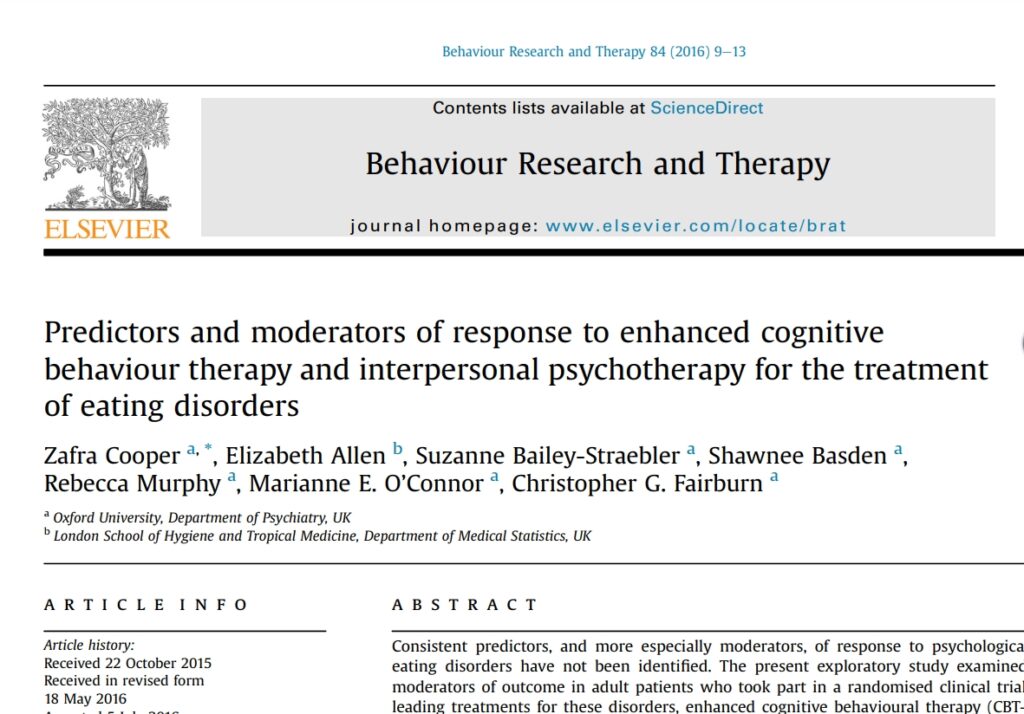
Abstract Consistent predictors, and more especially moderators, of response to psychological treatments for eating disorders have not been identified. The present exploratory study examined predictors and moderators of outcome in adult patients who took part in a randomised clinical trial comparing two leading treatments for these disorders, enhanced cognitive behavioural therapy (CBT-E) and interpersonal psychotherapy […]
Telephone delivery of interpersonal psychotherapy by certified nurse-midwives may help reduce symptoms of postpartum depression
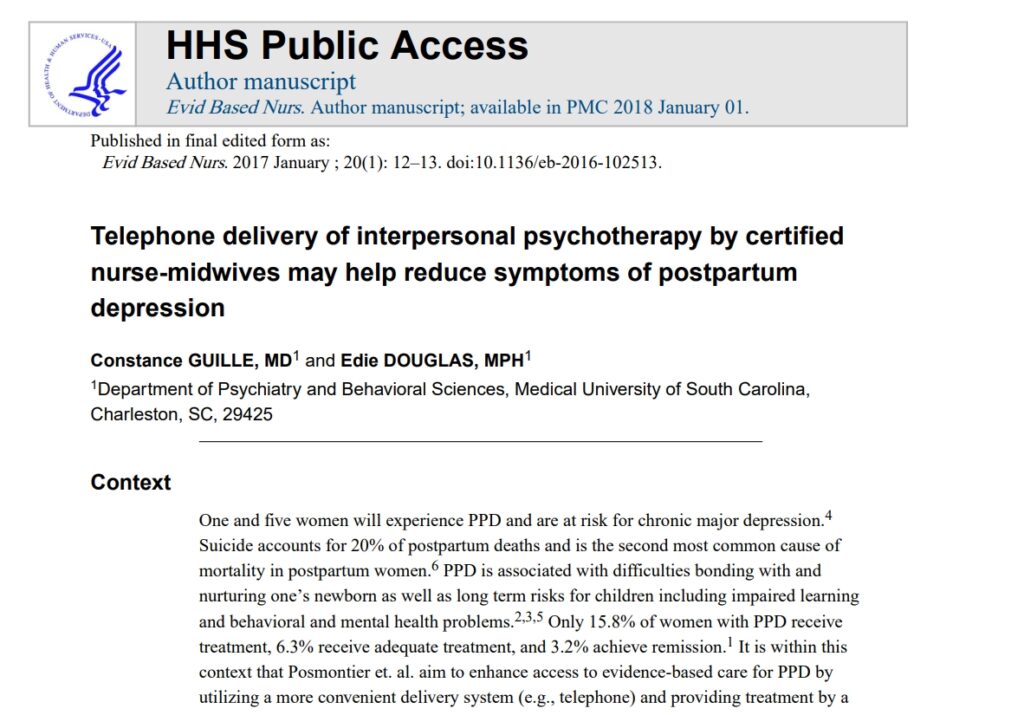
Context One and five women will experience PPD and are at risk for chronic major depression.4 Suicide accounts for 20% of postpartum deaths and is the second most common cause of mortality in postpartum women.6 PPD is associated with difficulties bonding with and nurturing one’s newborn as well as long term risks for children including […]
Brief Interpersonal Psychotherapy for depression during pregnancy in a low-income population: a randomized controlled trial
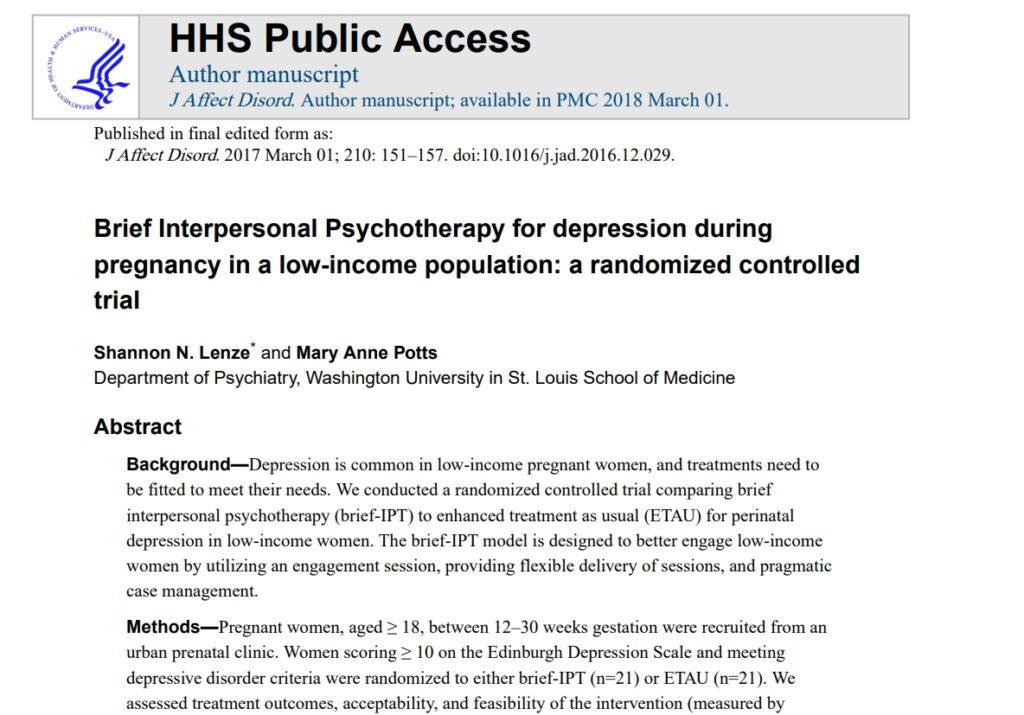
Abstract Background—Depression is common in low-income pregnant women, and treatments need to be fitted to meet their needs. We conducted a randomized controlled trial comparing brief interpersonal psychotherapy (brief-IPT) to enhanced treatment as usual (ETAU) for perinatal depression in low-income women. The brief-IPT model is designed to better engage low-income women by utilizing an engagement […]
Developmental Cascade Effects of Interpersonal Psychotherapy for Depressed Mothers: Longitudinal Associations with Toddler Attachment, Temperament, and Maternal Parenting Efficacy
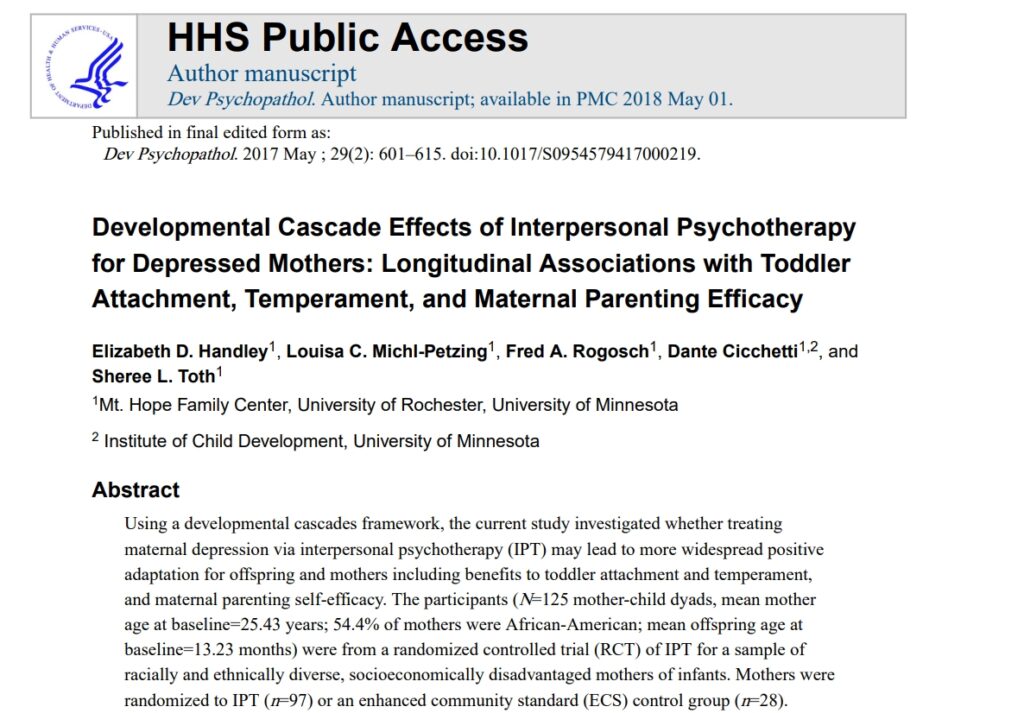
Abstract Using a developmental cascades framework, the current study investigated whether treating maternal depression via interpersonal psychotherapy (IPT) may lead to more widespread positive adaptation for offspring and mothers including benefits to toddler attachment and temperament, and maternal parenting self-efficacy. The articipants (N=125 mother-child dyads, mean mother age at baseline=25.43 years; 54.4% of mothers were […]
Local perceptions of the impact of group interpersonal psychotherapy in rural Uganda
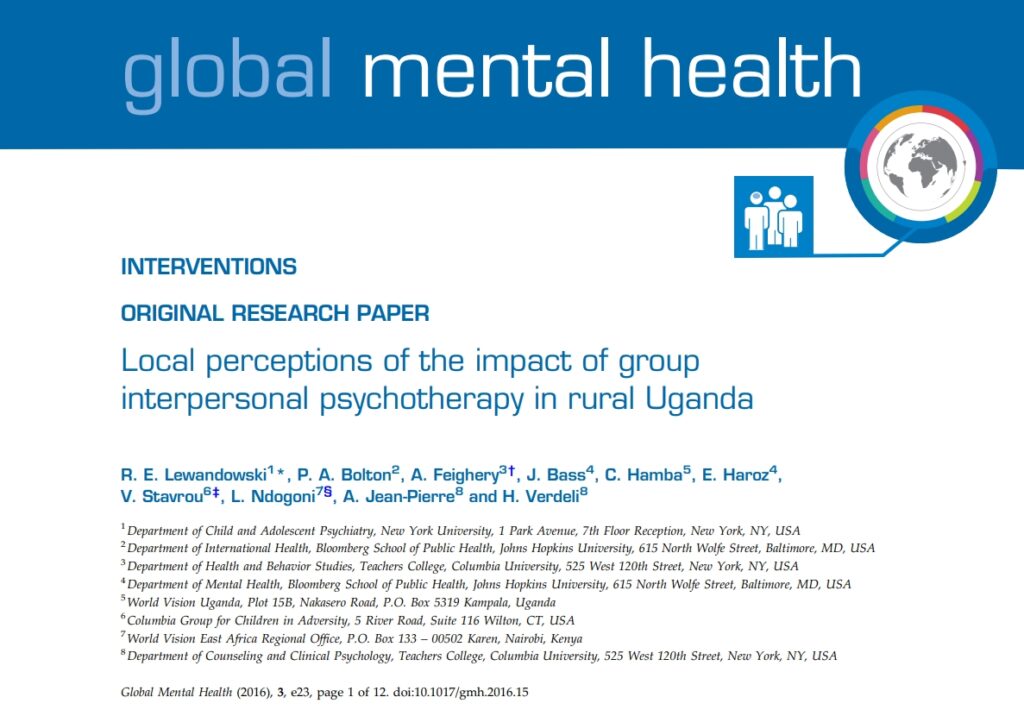
Abstract Background. This study investigated local perceptions of changes stemming from a long-standing Group Interpersonal Psychotherapy (IPT-G) program for the treatment of depression in rural Uganda. The study was conducted in a low-income, severely HIV/AIDS-affected area where in 2001 the prevalence of depression was estimated at 21% among adults. Method. Data were collected using free-listing […]
A Randomized, Comparative Pilot Trial of Family-Based Interpersonal Psychotherapy for Reducing Psychosocial Symptoms, Disordered-eating, and Excess Weight Gain in AtRisk Preadolescents with Loss-of-control-eating
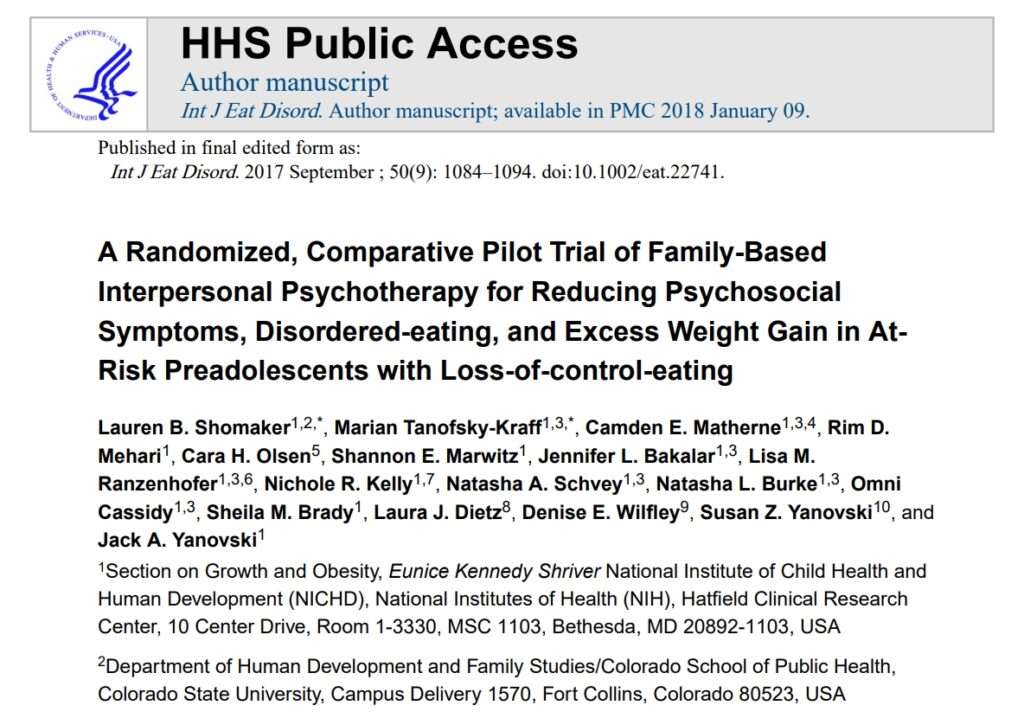
Abstract Objective Preadolescent loss-of-control-eating (LOC-eating) is a risk factor for excess weight gain and binge-eating-disorder. We evaluated feasibility and acceptability of a preventive family-based interpersonal psychotherapy (FB-IPT) program. FB-IPT was compared to family-based health education (FB-HE) to evaluate changes in children’s psychosocial functioning, LOC-eating, and body mass. Method A randomized, controlled pilot trial was conducted […]
Web-Based Therapist Training in Interpersonal Psychotherapy for Depression: Pilot Study
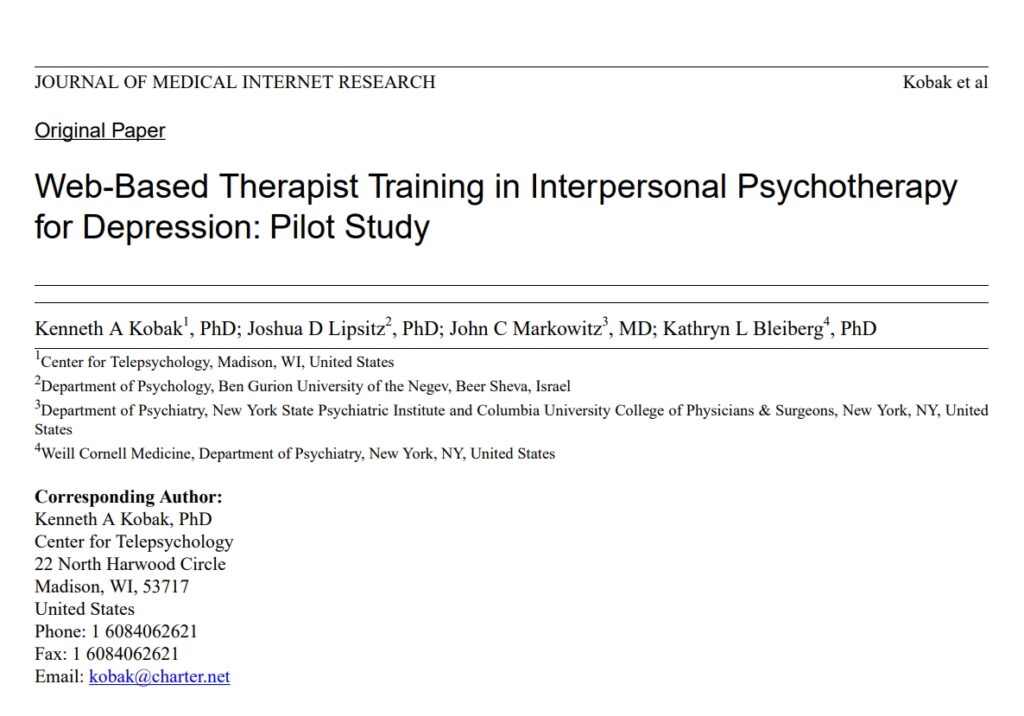
Abstract Background: Training mental health professionals to deliver evidence-based therapy (EBT) is now required by most academic accreditation bodies, and evaluating the effectiveness of such training is imperative. However, shortages of time, money, and trained EBT clinician teachers make these challenges daunting. New technologies may help. The authors have developed the first empirically evaluated comprehensive […]
Do Acute Benefits of Interpersonal Psychotherapy for Posttraumatic Stress Disorder Endure?

Abstract Objective: The Psychotherapies for Chronic PTSD randomised trial found that three 14-week psychotherapies acutely benefitted patients with chronic posttraumatic stress disorder (PTSD). Previous research has reported sustained follow-up benefits for prolonged exposure (PE) and relaxation therapy (RT), but few comparable data exist for interpersonal psychotherapy (IPT). We describe 3-month follow-up for acute responders to […]
Stepped Care Interpersonal Psychotherapy Treatment for Depressed Adolescents: A Pilot Study in Pediatric Clinics
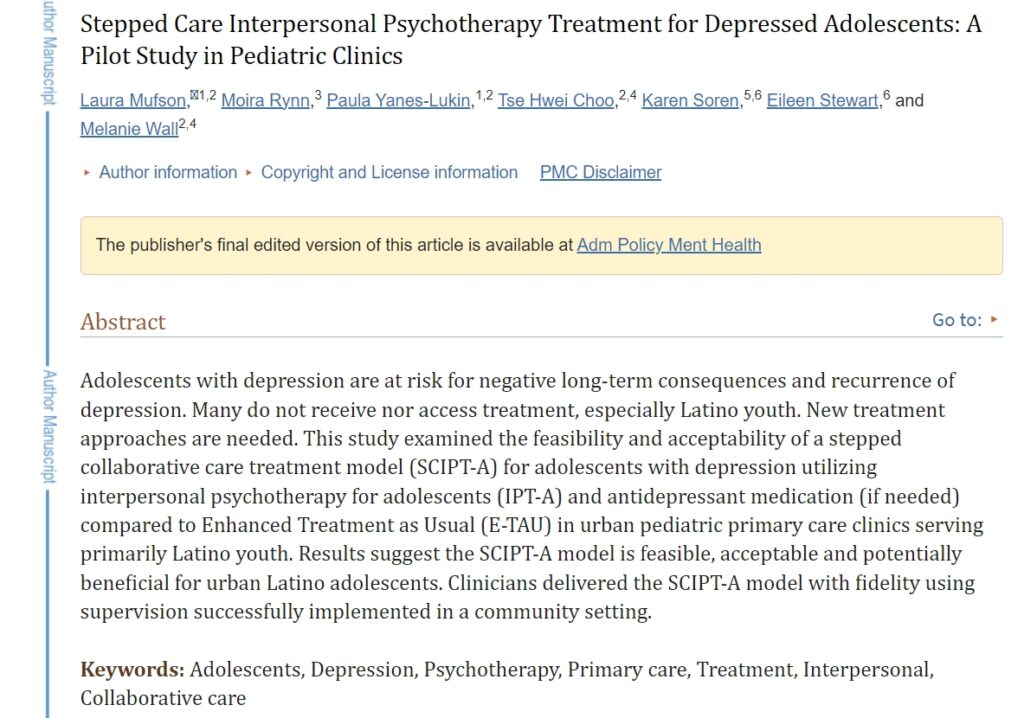
Abstract Adolescents with depression are at risk for negative long-term consequences and recurrence of depression. Many do not receive nor access treatment, especially Latino youth. New treatment approaches are needed. This study examined the feasibility and acceptability of a stepped collaborative care treatment model (SCIPT-A) for adolescents with depression utilizing interpersonal psychotherapy for adolescents (IPT-A) […]
Effect of Cognitive Behavioral Therapy Versus Interpersonal Psychotherapy in Patients with Major Depressive Disorder A Meta-analysis of Randomized Controlled Trials
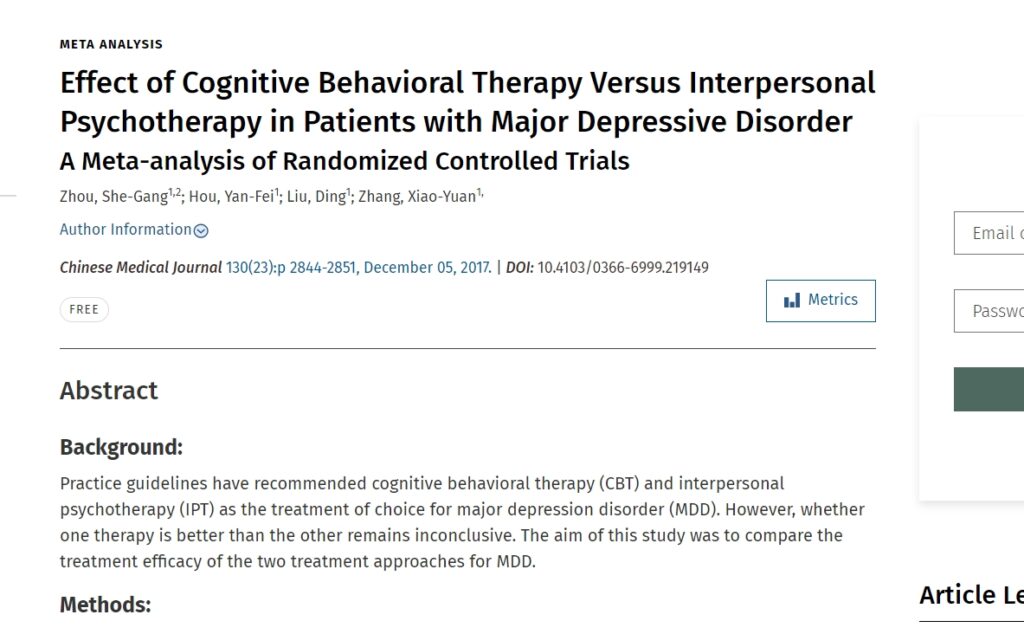
Abstract Background: Practice guidelines have recommended cognitive behavioral therapy (CBT) and interpersonal psychotherapy (IPT) as the treatment of choice for major depression disorder (MDD). However, whether one therapy is better than the other remains inconclusive. The aim of this study was to compare the treatment efficacy of the two treatment approaches for MDD. Methods: Using […]

